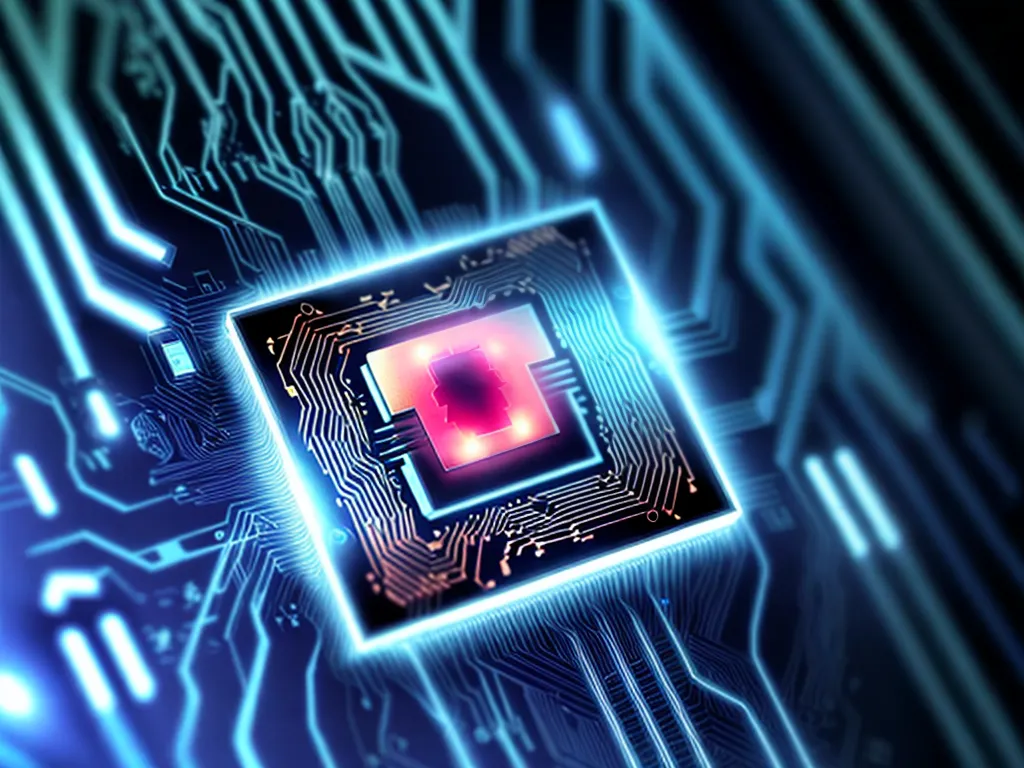
Introduction
Quantum computing is an exciting new field that leverages the strange properties of quantum mechanics to perform calculations in powerful new ways. Quantum computers have the potential to solve problems that would take even the most powerful classical supercomputers longer than the age of the universe. However, quantum computing also poses risks, especially regarding cryptography and cybersecurity. In this article, I will provide an in-depth look at how quantum computers work, how they may impact cryptography and cybersecurity, and what is being done to prepare for the coming quantum computing revolution.
How Quantum Computers Work
Unlike classical computers, which operate using binary bits representing 0 or 1, quantum computers use quantum bits or qubits. Qubits leverage a phenomenon called superposition to represent both 0 and 1 at the same time. They can also exhibit entanglement, allowing multiple qubits to become correlated in ways that defy classical explanation.
Quantum algorithms like Shor’s algorithm for factoring integers and Grover’s algorithm for searching databases exploit these quantum properties to achieve exponential speedups over the best known classical approaches. For example, Shor’s algorithm could potentially crackRSA encryption by factoring large numbers exponentially faster than classical computers.
However, quantum computers are notoriously difficult to build and operate. They require maintaining delicate quantum states that are easily perturbed by the outside environment. The community is still working on building fault-tolerant, scalable quantum computers with enough qubits to unlock these speedups. But progress is accelerating, with companies like Google, IBM, Intel, and Rigetti leading the charge.
Quantum Computing’s Impact on Cryptography
Most cryptographic algorithms rely on mathematical problems like factoring large primes that are difficult for classical computers. With Shor’s algorithm, a sufficiently large quantum computer could crack most popular public key encryption schemes like RSA and elliptic curve cryptography. This could enable adversaries to break encryption protecting sensitive data.
Post-quantum cryptography is an active area of research focused on developing new cryptographic primitives resistant to quantum attacks. Leading proposals include lattice-based cryptography, hash-based cryptography, and multiparty computation schemes. Migration to post-quantum algorithms will be necessary before large quantum computers emerge.
Quantum key distribution (QKD) offers another approach, using quantum physics to establish secure keys between parties that in principle can’t be compromised without detection. QKD could provide an unhackable solution but has limitations like distance and cost that may restrict widespread adoption.
Overall the threat quantum computing poses to cryptography is real but not immediate. With sufficient preparation and upgrading of standards before quantum becomes a reality, we can manage the risks. But complacency is dangerous – we must begin migrating our cryptosystems now.
Broader Cybersecurity Implications
Beyond cryptography, quantum computing holds other significant implications for cybersecurity:
- Faster cracking of passwords/hashes – Grover’s algorithm could speed brute force attacks. Longer keys will be required.
- More potent AI/optimization – Quantum machine learning could enhance malware, phishing, and automation of attacks.
- Quantum sensing – Quantum sensors may enable new forms of side-channel attacks by detecting electromagnetic, acoustic or thermal state changes from crypto hardware.
- Quantum networking – Quantum communication links offer inherent security by detecting tampering but also enable more distributed quantum computation.
On the defensive side, quantum computers could also help cybersecurity experts via superior information processing, pattern finding, and simulation of adversaries’ capabilities.
Overall we must be proactive about analyzing quantum computing’s offensive and defensive implications for cybersecurity. A hacker with a quantum computer is still an intelligent adversary able to tails attacks to systems’ weaknesses. Sound cybersecurity practices will remain essential even in a quantum world.
Preparing for the Quantum Computing Revolution
To summarize, here are some steps organizations should take to prepare for quantum computing:
-
Inventory encryption schemes/applications/data – Document where classical cryptography is used to prioritize areas of risk.
-
Establish cryptographic agility – Design systems such that cryptographic primitives can be easily swapped out when new standards emerge.
-
Adopt post-quantum crypto standards – Actively monitor developments in post-quantum cryptography and integrate into technology stacks.
-
Upgrade keys/certificates – Increase key sizes and validity periods to delay expiration into post-quantum era.
-
Leverage quantum-safe hardware – Utilize hardware with quantum-resistant capabilities like lattice cryptography co-processors.
-
Stay up to date – Track advances in quantum computers and cybersecurity. Participate in industry consortia like the PQCRYPTO IETF working group.
The arrival of quantum computers will require fundamental upgrades across the IT infrastructure stack. But with preparation and continued research, we can manage the risks and build a safer, more quantum-savvy digital ecosystem. Though the quantum era brings uncertainty, it also promises great leaps forward in human knowledge and progress.












